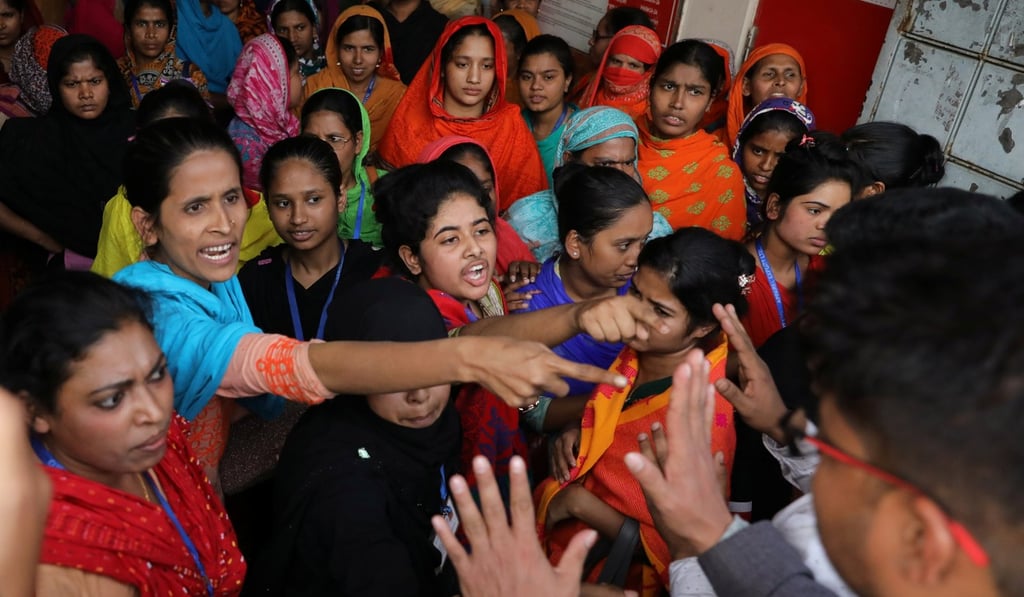Spice Girls gender equality T-shirts made in low-paying Bangladesh factory
- The charity tops, bearing the message ‘#IWannaBeASpiceGirl’, were produced by mostly female machinists who said they were forced to work up to 16 hours a day and were verbally abused by managers

Spice Girls T-shirts sold to raise money for Comic Relief’s “gender justice” campaign were made at a factory in Bangladesh where women earn the equivalent of 35 pence (US$0.45) an hour during shifts in which they claim to be verbally abused and harassed, a Guardian investigation has found.
The charity tops, bearing the message “#IWannaBeASpiceGirl”, were produced by mostly female machinists who said they were forced to work up to 16 hours a day and called “daughters of prostitutes” by managers for not hitting targets.
Money raised from sales of the £19.40 (US$24.94) T-shirts will be donated to Comic Relief’s fund to help “champion equality for women”. The charity is due to receive £11.60 for each T-shirt, which were commissioned and designed by the band, but said it has yet to be given any money.
Announcing the partnership, the Spice Girls said the cause was important to them because “equality and the movement of people power have always been at the heart of the band”.

But one of the machinists at the factory that produced the garments – modelled on social media by the television presenter Holly Willoughby, the singers Sam Smith and Jessie J, and the Olympian Jessica Ennis-Hill – said: “We don’t get paid enough and we work in inhuman conditions.”